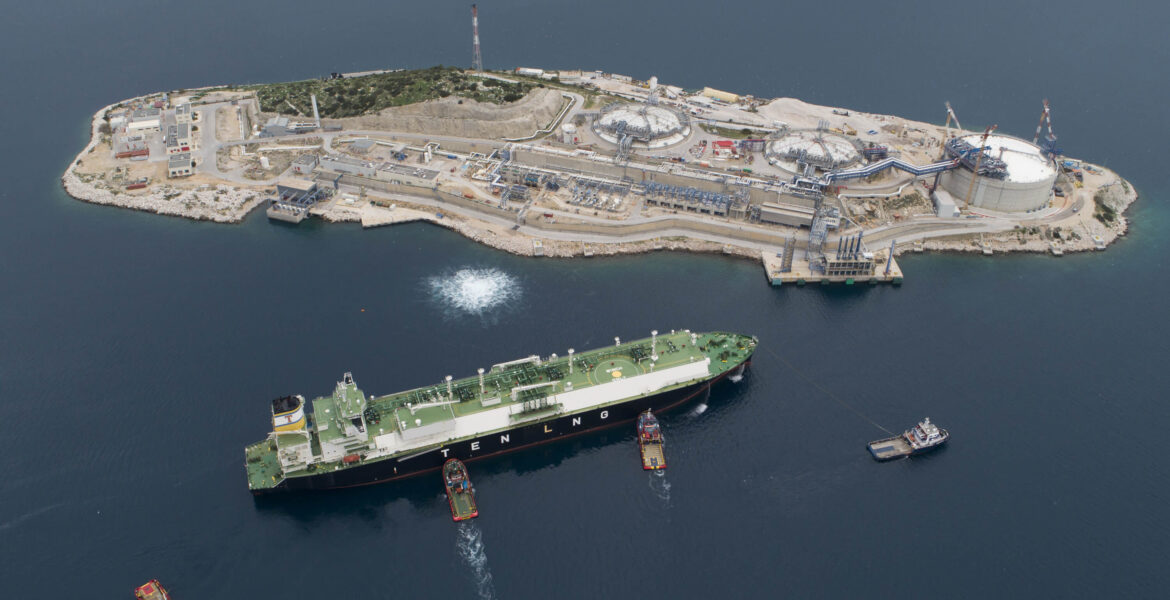A floating LNG storage unit at the Revythoussa terminal station has been found to be both feasible and useful for ensuring security in the natural gas supply, Hellenic Gas Transmission System Operator (DESFA) sources said to AMNA on Friday.
It was very important that this solution be implemented rapidly, they noted, as the demand for such infrastructure is high on a global basis due to the war in Ukraine.
According to a decision reached at the urgent meeting of the Crisis Management Committee of the Environment and Energy Ministry on Wednesday, DESFA must submit an initial cost/benefit analysis regarding the addition of a floating LNG unit on Friday.
As DESFA sources said, the usefulness of a floating storage unit is not restricted to improving (almost doubling) storage capacity at Revythoussa, but mainly because it will increase the flexibility of LNG supply chain.
Namely, it will make it possible to receive supply ships at times when the fixed storage units are full, allowing the reception of more ships at a time when international demand for LNG cargos is high.
Meanwhile, Germany has taken the first official step towards gas rationing as fears grow over a potential stop in Russian deliveries amid a standoff over payments in rubles.
The move by the European Union’s industrial powerhouse on Wednesday to activate the “early warning” phase” of an emergency gas law was the clearest sign yet countries in the bloc were preparing for supply issues after rolling out far-reaching sanctions in the wake of Russia’s invasion of Ukraine last month.
“A crisis room will now be established in the ministry,” economics minister Robert Habeck told reporters in Berlin, adding that the team will be comprised of members from his ministry, the country’s regulator and the private sector.
The “early warning” measure, the first of three alarm levels under the German government’s emergency gas plan, was “preventative” and intended to assure supply of the fuel, said Habeck, who is also energy minister and vice chancellor.
Gas reserves were currently at 25 percent of capacity, Habeck added, cautioning that a stop to deliveries from Russia would have “serious” consequences, though supplies continued to flow normally.
READ MORE: Greek unemployment rate falls to 11.9%, EU average remains at historic low.


